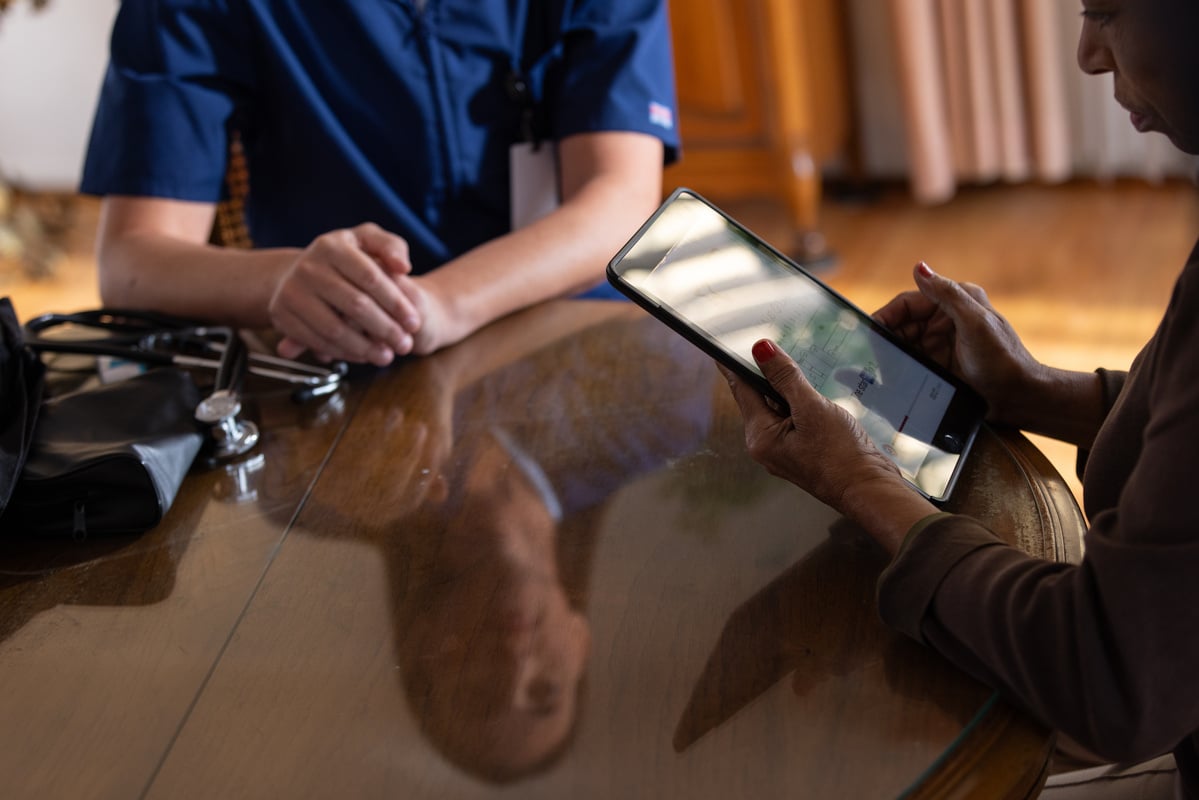
Throughout my career as a clinician, I have seen firsthand the concerns and challenges that cognitive issues give older adults. They fear they’ll lose their memory, their independence, and become a burden to their loved ones. The questions they ask most often are if their “forgetfulness” is just natural aging, or if they’re developing a form of dementia. They are often scared of the answer because they think there is little they can do about it.
Even though there is no cure for dementia, if you or a loved one are tested and diagnosed early, there are treatments that can slow down disease progression and help you protect your cognitive function, potentially adding years to your memory and ability to live independently.
The key is early screening and diagnosis, but sadly, far too many seniors have not been tested. In fact, 92-percent of older Americans living with mild cognitive impairment (MCI), a common predecessor to dementia, are estimated to be undiagnosed. Similarly, more than half of adults aged 45 and older, who believe they have cognitive decline, have not talked with their health care professional to get tested. This gap is a huge concern since diagnosed cognitive issues can be treated to help reduce the disease’s progression. Without this treatment seniors with MCI have an increased chance of hospitalizations, higher costs, and risks of comorbidities such as depression, stroke, hypertension, and undesired weight loss.
Early identification of cognitive issues is one of the best things you can do for yourself, your families and caregivers. While individuals with MCI and those around them may be aware that memory or mental function is declining, oftentimes these subtle changes may seem insignificant, so they do not discuss it with their primary care provider or benefit from early interventions that can make the most impact.
Some important symptoms to look out for when considering if the mental decline goes beyond the typical forgetfulness that comes with age are:
- Missed appointments and social events.
- Consistently losing train of thought and inability to follow the plot of a book or movie.
- Trouble following a conversation.
- Difficulty making decisions, finishing a task, or following instructions.
- Issues finding a way around familiar places.
If you or an aging loved one is experiencing these symptoms, do not ignore them. Take action and get tested as early as possible. If you are diagnosed with MCI, you can determine your treatment options and start them early to help you stay independent for as long as possible.
Testing is easy and convenient. In fact, digital cognitive testing, which leverages technology for a more accurate diagnosis, is one of the most efficient and effective methods to catch and address cognitive issues early. These tests, which can be completed in less than ten minutes, are offered to eligible health plan members as a part of Signify Health’s In-Home Health Evaluations (IHEs).
During an IHE, clinicians can administer a cognitive health digital screening test to seniors from the comfort of their own homes. The IHE is included in the members’ annual health plan benefits, so these tests are conducted at no additional cost to the member.
As part of the IHE, our clinicians administer the digital cognitive test in the members’ homes where they are more receptive and relaxed. Our clinicians also discuss any concerns and fears a member may have regarding the sensitive topic of cognitive decline. Once the test is completed, the results are shared with the client and the member’s primary care provider to help coordinate care and establish care pathways so health plan members get the support and resources they need.
By catching cognitive health issues early, seniors can get ahead of the disease progression and start treatment that may help reduce future caregiving challenges and concerns. Additionally, early detection gives members and their caregivers extra time to learn more about cognitive decline, participate in critical long-term care decisions and activate care planning by mitigating safety risks, preventing complications, and applying lifestyle changes.
If you or a loved one is interested in exploring the value of digital cognitive testing, visit our self-scheduling portal to see if you’re eligible for an In-Home Health Evaluation.
